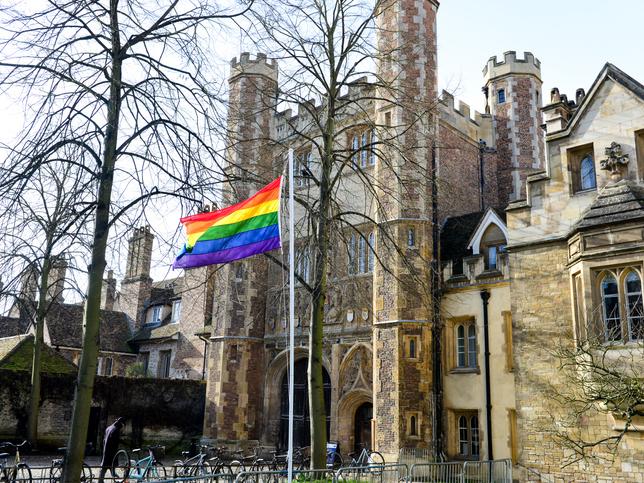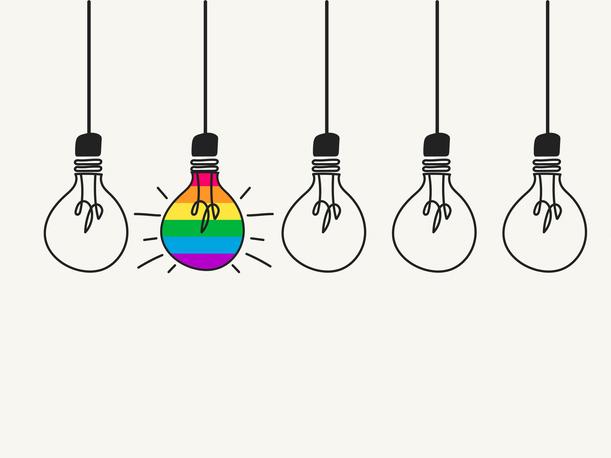
How LGBTQ leaders navigate a predominantly non-LGBTQ world

You may also like
For most of my 40-year career in higher education, I was very out and upfront about being a lesbian. As such, when I served as a university president, I was very out. I clearly knew that my human identity, including being a lesbian, informed my approach to leadership. Some of my proudest moments as president were when my approach to leadership made the university better.
Since I believe one’s approach to leadership is informed by our lived experiences, is it plausible to reason that there are leadership characteristics that are generalisable to leaders who are LGBTQ or what could be called “LGBTQ leadership characteristics”? While this notion is often presented by LGBTQ leaders, scholars and others, it is usually intended to summarise the leadership approaches of the growing numbers of leaders who are publicly identifying as LGBTQ and who are now being recognised as a distinct group.
- Leadership styles that work in the ‘new normal’
- The 10 steps towards inclusivity in universities
- The art of fostering collegiality
The question to consider is to what extent, if any, are there leadership characteristics specifically and uniquely attributable to LGBTQ leaders?
What is LGBTQ leadership?
If we were to consider that there are LGBTQ leadership characteristics, how would we come to know them as distinguishable from the general run-of-the-mill leadership qualities? The truth is that our communities are tremendously diverse within themselves and thus our approaches to leadership will be different. What if there are no inherent LGBTQ leadership characteristics? This is particularly plausible when one considers the intersectionality that exists, with each of us nesting our identities within identities.
When appreciating intersectional identities, it becomes even more difficult to offer a generalisable laundry list of leadership characteristics attributable to an LGBTQ identity. For example, the way in which a tall, thin, white, gay man in his 40s leads will be different from a short not-so-thin, white, lesbian woman in her 60s (this would be me). We would have different lived experiences. Our life’s journey will have been fundamentally different, and the way people act and react to us will be different.
As a result, our approach to leadership will be different. We do, however share leading as LGBTQ educators in a predominantly non-LGBTQ world.
What if there are no inherent leader characteristics, but there is a leadership style based on the LGBTQ leader’s reaction to or navigation of the dominant patriarchal and heterosexist society that contextualises how we lead?
Navigation is how we act and react to others. Think of it as if you were sailing a ship from one port to another and you had to navigate rough seas and many hazards to get to your destination. As such, the real LGBTQ “leadership style” is not a laundry list of usually desirable leadership characteristics that any leadership scholar would deem markers for quality. In actuality, the core of this leadership style is what every LGBTQ leader does to navigate a patriarchal, gendered, heterosexist culture. Those skills of successful navigation are the elements of what connects LGBTQ leaders and are thus the foundation of our style.
Awareness, understanding and perfecting how we successfully navigate the dominant culture’s structures of power and privilege form the basis of an “LGBTQ leader-navigator style”. The LGBTQ leader-navigator uses their constructed approach to leadership to navigate through the dominant culture. This could be the common thread that connects us to our very diverse LGBTQ culture.
How cultural context shapes successful leaders
The successful LGBTQ leader possesses an awareness of their existence within and outside of the dominant culture. Through this cultural understanding, coupled with both life and leader experiences, the leader-navigator creates and perfects their style within a context that manages the patriarchal, gendered, heterosexist structures of power, privilege and bias. As such, the LGBTQ leader does not possess universal specific characteristics. They access leadership characteristics that exist within a leader-navigator framework. The LGBTQ leader-navigator knows they are living and leading in a time that has been filled with a history and culture of contempt for LGBTQ folk. They know they exist outside the majority culture. They know that they came to owning and expressing their identity with risk and courage. They also know that they own many other identities as well.
This search for the common thread could well inform future leaders and leadership-development programmes. Simply asking LGBTQ leaders to talk about their approach to leadership without framing their leadership in terms of how well one navigates the dominant cultural is a missed opportunity for a truly informed discussion.
Most leadership-development programmes leave out the cultural context, when it is one of the first topics that should be addressed. Understanding what forms successful leadership matters, and clearly understanding what is common to LGBTQ leadership success matters. Looking at the LGBTQ leadership style as being based on reacting to or navigating the power structures that dominate our culture is essential to fully describing the LGBTQ leader’s approach to leading. Understanding the likelihood that during one’s presidency there will be moments that one will need to be prepared to “lead through the hate” is inevitable.
It is important to consider while preparing for a presidency how you plan for these often-defining moments. This sharper awareness also provides an opportunity to inform leader-preparation programmes in ways that could increase LGBTQ leader success. Engaging and supporting LGBTQ leaders is important in that we are part of the diversity of thought and action needed for colleges and universities to achieve their priorities and overcome challenges.
This is an edited version of an essay that was originally published in the collection LGBTQ Leadership in Higher Education, edited by Raymond Crossman (Johns Hopkins University Press, 2022).
Karen M. Whitney is an organisational and leadership development writer, speaker, consultant, adviser and president emerita of Clarion University. She advocates for courageous and confident leadership that is needed now more than ever in higher education, particularly since the challenges and threats to leadership success seem to be increasing.
If you found this interesting and want advice and insight from academics and university staff delivered direct to your inbox each week, sign up for the THE Campus newsletter.


